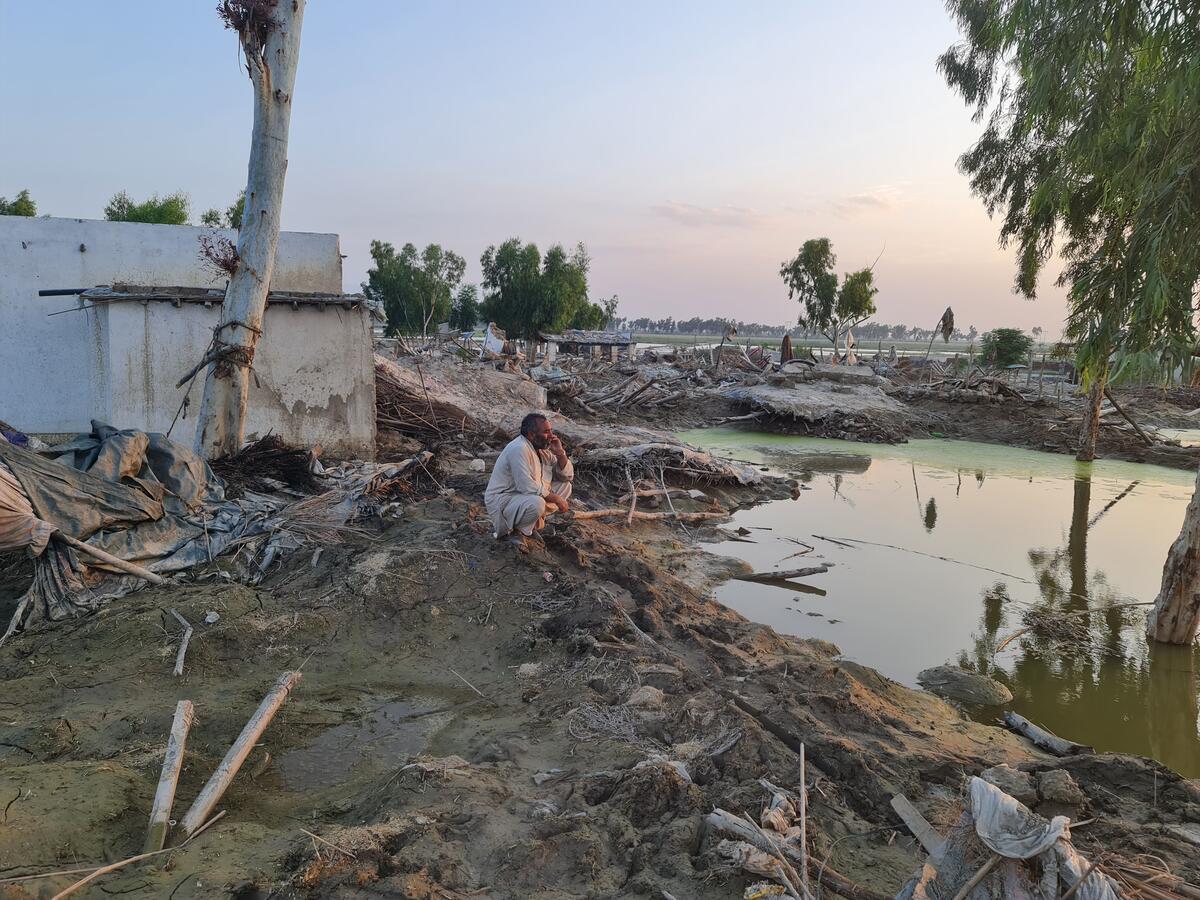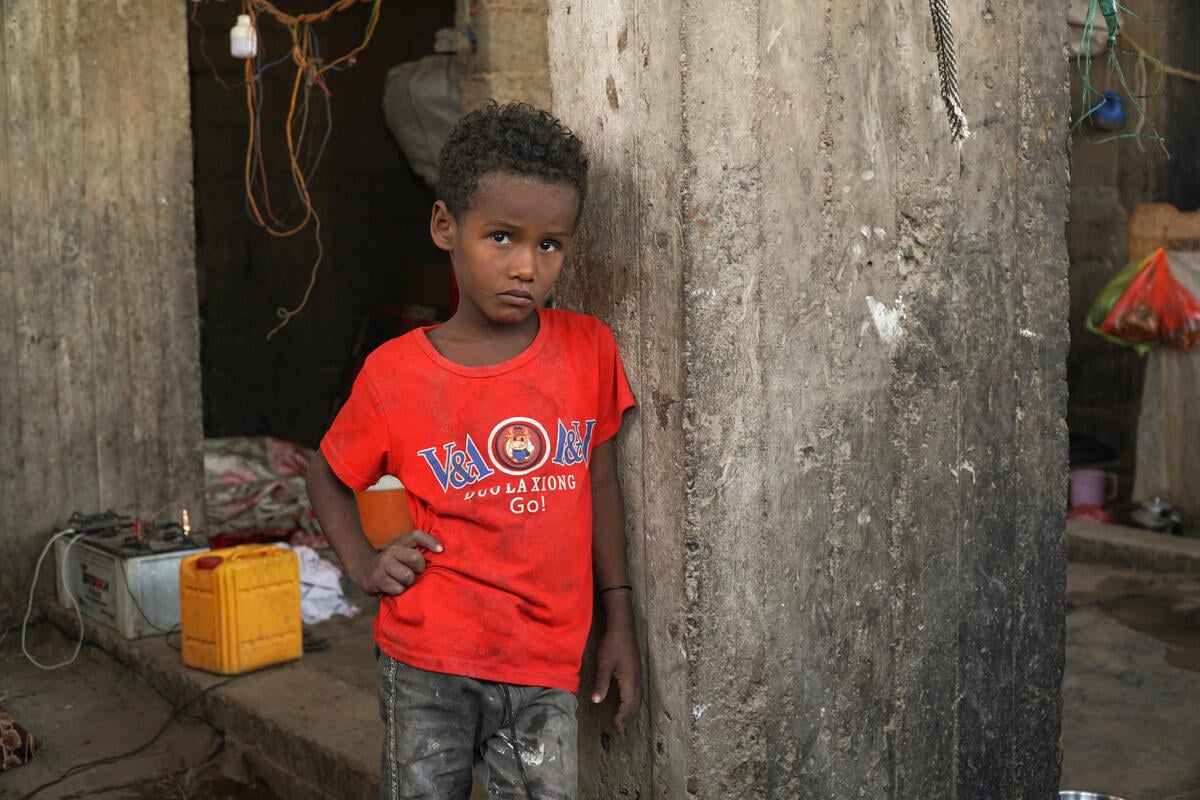Poorest Syrian refugees facing ruin due to underfunding
When Saif entered Jordan as a refugee in mid-2014, he arrived at the border on the back of a motorcycle, strapped to the rider to avoid falling off. He was carried across on a stretcher, unable to walk or even stand due to injuries sustained during the previous two years of imprisonment inside Syria.
“When I came to Jordan, I didn’t have a single penny on me,” he explained. “I was wearing only underwear, and covered in a bedsheet. My physical condition was very bad.”
Once inside Jordan, Saif joined his elderly mother Mona, who had fled their home in Damascus shortly after his arrest. She also suffered from ill health having survived throat cancer, and both mother and son required medication which they weren’t always able to secure.
“The financial situation here was very bad,” the 53-year-old former bulldozer driver said of those first months in exile. “Sometimes we had to do without medication because we didn’t have the money.”
It is a situation all too familiar to 5.65 million Syrian refugees across the region after more than seven years of conflict. Three quarters of those in Jordan and Lebanon are living below the poverty line, struggling to find work opportunities and afford even the most basic necessities such as shelter, food and healthcare.
The protracted crisis has also put increasing pressure on the countries and local communities hosting refugees, straining already overstretched infrastructure and making it harder for refugees to access basic services such as healthcare.
"When I started receiving cash assistance, my mood changed."
Like many others, Saif and his mother were thrown a financial lifeline when they began receiving monthly cash assistance of 80 Jordanian dinars (US$113) from UNHCR, the UN Refugee Agency.
The money allowed them to cover their rent and buy medication, and Saif could afford the physical therapy that has allowed him to now move around with the aid of a walking frame.
“When I started receiving cash assistance, my mood changed. I could buy my medicine and help my mother with the rent,” he explained. “It made a big difference. I felt better physically and psychologically.”
Some 30,000 of the most vulnerable refugee families in Jordan currently receive cash assistance – equivalent to around 180,000 people – with roughly a third of those households having at least one family member with a disability.
Yet an acute shortage of funding for UNHCR programmes threatens to cut off this vital lifeline from the end of June, with UNHCR requiring US$40 million to keep the cash assistance programme operating until the end of the year in Jordan alone.
Across the region as a whole, which is currently host to more than 5.65 million registered refugees from Syria’s seven-year conflict, US$116 million is urgently needed to avoid cutting off assistance to 87,000 families, pushing them deeper into poverty and despair.
"We are running out of funds to support these refugees."
The lack of funds for UNHCR’s cash programme is part of a larger funding shortage affecting the regional response plan for the Syria crisis as a whole, known as the 3RP.
Of the total US$5.6 billion requested by UN agencies and humanitarian partners for 2018 to assist more than 9 million refugees and vulnerable host community members, projections show that the appeal is currently less than one-third funded.
“The appeal today could not be any clearer,” UNHCR Director for the Middle East and North Africa Bureau, Amin Awad, told a news conference in Amman. “We need US$450 million a month. We received so far about a billion. By now we should have about US$2.7 billion to do our job.”
“We are running out of funds – or ran out of funds, really – to support these refugees,” Awad continued. “We’re already falling behind in providing cash assistance to these refugees, in making sure that we’re picking up their health bills, in supporting governments and municipalities to continue to giving services to refugees.”
If the cash assistance is cut off, Saif said that he and his mother would be unable to support themselves, forcing them to choose between living on the streets in Jordan or returning to their war-torn homeland.
“Here in Jordan it is our only support - we live from that assistance,” he said. “If they are going to cut the assistance then my mother and I have to return to Syria. Even if we have to die there, we will never beg for money.”









